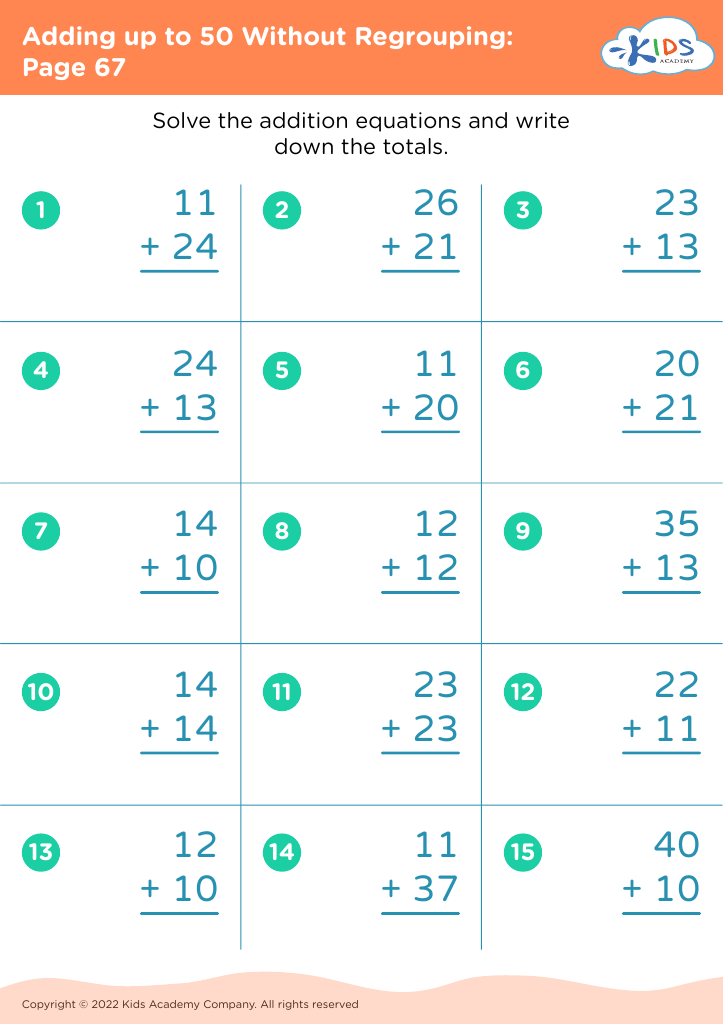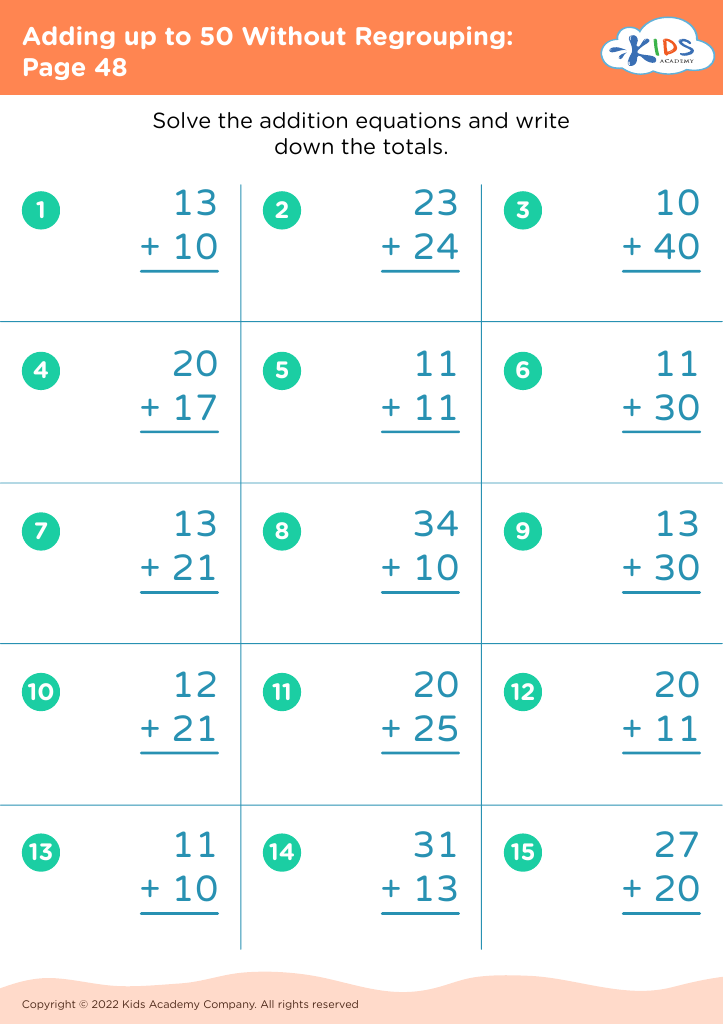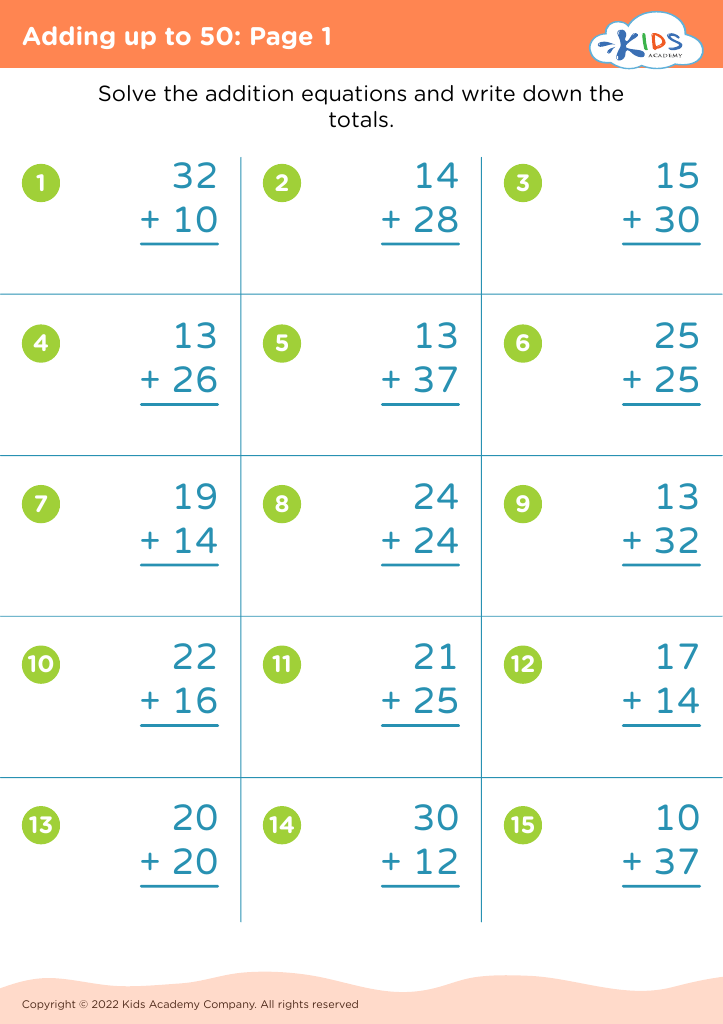Basic Addition Adding up to 50 Worksheets for Ages 5-8
7 filtered results
-
From - To
Discover the joy of learning with our "Basic Addition Adding up to 50 Worksheets for Ages 5-8." These engaging worksheets are crafted to help young learners strengthen their foundational math skills. Perfect for children aged 5-8, each worksheet focuses on basic addition up to 50, providing a seamless transition from simple to more complex problems. Our fun, vibrant worksheets are designed to keep kids motivated and excited about math. Ideal for both classroom and at-home practice, they ensure that every child can confidently navigate the world of numbers. Unlock your child's potential with our comprehensive math resources.
Parents and teachers should profoundly care about teaching basic addition up to 50 for children aged 5-8 because foundational math skills are critical to cognitive development and future academic success. During these formative years, children build the essential building blocks for more complex mathematical concepts. Mastering basic addition not only strengthens their numerical understanding but also enhances their problem-solving and critical-thinking skills, which are crucial across all learning areas.
Moreover, gaining proficiency in addition fosters a sense of accomplishment and confidence in young learners, motivating them to tackle more challenging tasks. By cementing these early math skills, children are better prepared for higher-level arithmetic and algebra, ensuring a smoother transition into more advanced subjects.
Additionally, developing strong basic math skills has practical, everyday applications. It makes children capable of understanding time, money, measurements, and simple budgeting. Early positive experiences with math can reduce math anxiety and promote a lifelong appreciation for the subject.
Collaborative efforts between parents and teachers can ensure a consistent learning environment, making concepts more relatable through practical, hands-on experiences both at school and home. Ultimately, caring about early addition skills primes children for academic achievement and everyday life competencies, setting them on a path toward lifelong learning and success.



















